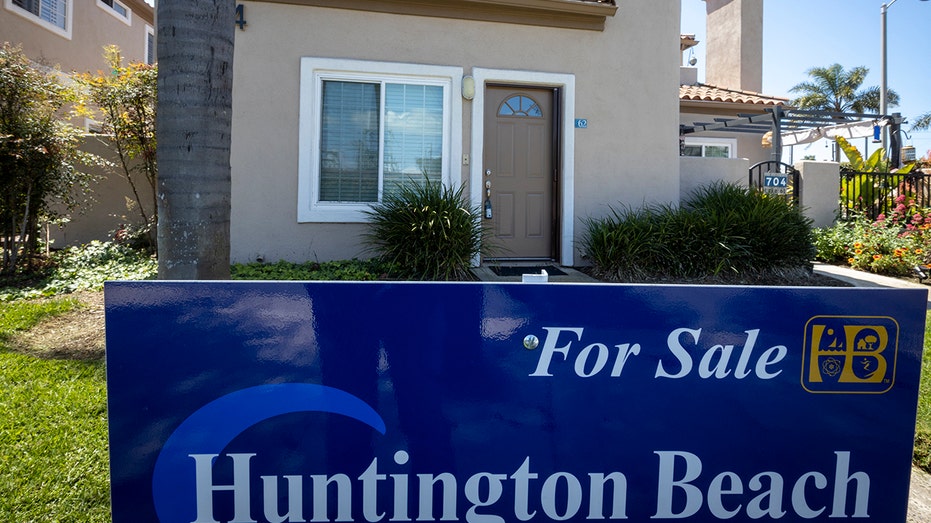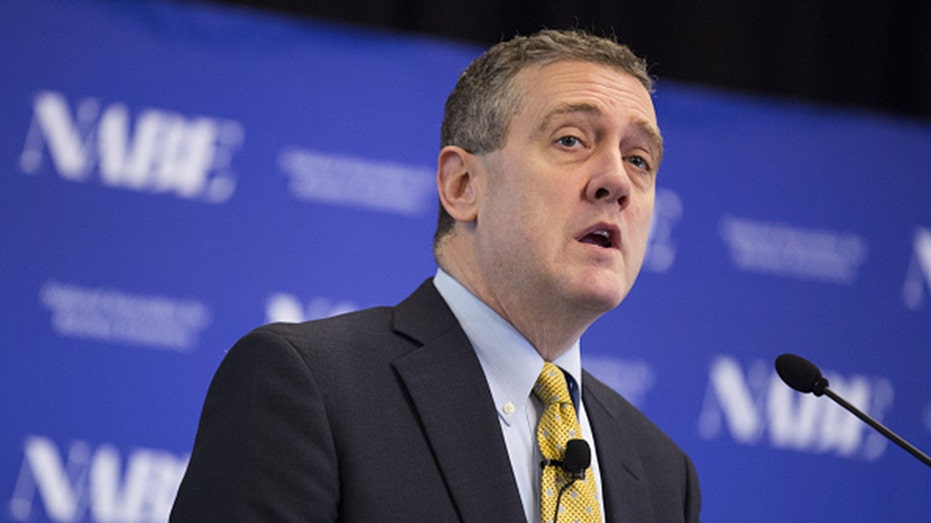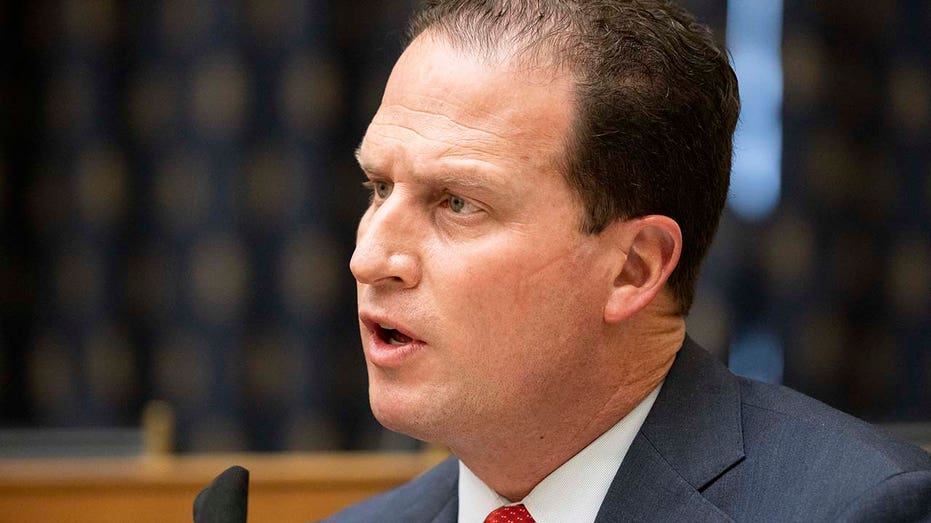Economic reports, 2023 market volatility, oil prices and more: Tuesday's 5 things to know
Events to watch on Tuesday include release of home prices for September and the latest consumer confidence index for November
White House authorizes Chevron to resume drilling oil in Venezuela
Fox News contributor Karl Rove and California Rep. Darrell Issa discuss Chevron's plan to pump oil in Venezuela on 'The Evening Edit.'
Here are the key events taking place on Tuesday that could impact trading.
ECONOMIC REPORTS: Reports on home prices and the mood of consumers are on deck Tuesday.
At 9 a.m. ET, home prices for September will be released by S&P CoreLogic Case-Shiller.
There is no Refinitiv estimate for the non-seasonally adjusted 20-city index, which fell 1.6% in August.
TAYLOR SWIFT'S FORMER NYC TOWNHOME IS AVAILABLE TO RENT FOR $45,000 PER MONTH

A townhome in Huntington Beach listed for $1,100,000 in April 2022. (Allen J. Schaben / Los Angeles Times via Getty Images / Getty Images)
However, the seasonally adjusted 20-city index is expected to fall 1.2%, the seventh straight monthly decline but a slight improvement from August’s 1.3% slide, which was the largest monthly tumble since March 2009.
For the year, home-price growth as measured by the 20-city index is expected to rise 10.8% annually in September. While that’s a large spike to be sure, it would be the fifth month in a row of slower growth, down from a record 21.3% in April, and the smallest annual gain since February 2021.
Then, at 10 a.m. ET, the Conference Board will release its consumer confidence index for November.
It’s expected to slip two-and a-half points to 100.0, the lowest since June, after a steeper-than-expected drop to 102.5 the previous month on inflation and recession worries.
Confidence is down sharply from a post-pandemic high of 128.9 in June of last year as surging inflation drags on the mood of consumers.
MARKET VOLATILITY IN ’23?: The stock market could face further volatility next year as it has not yet priced in the likelihood of a recession, according to Goldman Sachs strategists.
In a Monday analyst note, the strategists – led by Christian Mueller-Glissmann and Cecilia Mariotti – said there is a 39% probability of a growth slowdown in the U.S. over the next 12 months. Despite that, risk assets are only reflecting an 11% chance.
"This increases the risk of further recession scares next year," they wrote.
The analysis showed that equities typically rebound once inflation has peaked if the economy avoids a recession. If the U.S. enters a downturn though, stocks could decline another 10% on average in the six to nine months after the peak.
ECONOMIC INDEX FLASHES MAJOR RECESSION WARNING SIGN

Trader Peter Mazza works on the floor of the New York Stock Exchange Monday, March 16, 2020. (AP Photo/Craig Ruttle / AP Images)
"The bear market is not over, in our view," they wrote. "The conditions that are typically consistent with an equity trough have not yet been reached. We would expect lower valuations (consistent with recessionary outcomes), a trough in the momentum of growth deterioration, and a peak in interest rates before a sustained recovery begins."
A separate Goldman analyst note last week from strategists Peter Oppenheimer and Sharon Bell predicted the bear market will continue into 2023, with the S&P finishing the year at 4,000 index points – up just 0.9% from Monday afternoon.
"The bear market is not over, in our view," they wrote. "The conditions that are typically consistent with an equity trough have not yet been reached. We would expect lower valuations (consistent with recessionary outcomes), a trough in the momentum of growth deterioration, and a peak in interest rates before a sustained recovery begins."
CHINA FACTOR: U.S. stocks pulled back Monday as widespread protests across China against the country's zero-COVID-19 policy sparked worries among investors about the outlook for global growth.
The S&P 500 fell 62.18 points, or 1.5%, to 3963.94. The Dow Jones Industrial Average lost 497.57 points, or 1.4%, at 33849.46. The Nasdaq Composite declined 176.86 points, or 1.6%, to 11049.50.
Stocks opened in the red, but the selloff accelerated in the afternoon after comments from Federal Reserve officials indicating interest rates could be higher for longer as inflationary pressure persists.
New York Fed President John Williams on Monday said "there is still more work to do" to bring down prices.
St. Louis Fed President James Bullard also discussed elevated rates moving forward.
"After those Fed comments with a greater-than-anticipated hawkish sentiment, it's not surprising that we're seeing even more red than we did earlier," said Greg Bassuk, chief executive of AXS Investments.
CRYPTO INVESTOR SCAMMED BY FTX: 'I MADE THE WRONG DECISION'

James Bullard, president and chief executive officer at the Federal Reserve Bank of St. Louis, speaks during the National Association of Business Economics' (NABE) Economic Policy Conference in Washington, D.C. (Joshua Roberts/Bloomberg via Getty Images / Getty Images)
Investors are awaiting the Labor Department's November jobs data to be released Friday, which will likely factor heavily into the Fed's December interest-rate decision.
The U.S. stock market had mounted a strong recovery in recent weeks on optimism that the Fed will soon slow its interest-rate increases, but the comments Monday and the weekend protests in several Chinese cities threaten to inject fresh volatility.
China's economy is already on delicate footing, and the protests have raised concerns about what direction it takes from here.
Strategists and investors say they are contemplating the risk that the protests could result in stronger lockdowns, potentially denting the economy even further. The demonstrations have been significant not only for their size but also their rarity: Open displays of anger are unusual in China and having protests across several cities is especially significant.
"I just don't think [authorities] will want to look as though they are backing down in response to protests," said Susannah Streeter, senior investment and markets analyst at Hargreaves Lansdown. "If you keep having rolling lockdowns, consumer demand will be dented, there will be an ongoing effect on supply chains... and there could be a drop in demand for key commodities."
OIL MARKETS: Oil prices dropped Monday, with Brent crude down 0.5% to $83.19 a barrel, its fourth straight loss and lowest settle since January.
Oil fell as low as $80.61 a barrel earlier in the session.
Energy companies fell along with oil prices. Every component in the S&P 500 energy sector closed Monday lower. Diamondback Energy dropped $5.59 a share, or 3.7%, to $143.73. Occidental Petroleum and Exxon Mobil also declined.
WHITE HOUSE DEFENDS EASING OIL SANCTIONS ON VENEZUELA, SAYS ‘PLENTY OF OPPORTUNITIES' TO DRILL IN US

Silhouette of working oil pumps as the sun sets in the background. (iStock / iStock)
The oil market "has corrected on the idea that it's not going to be a full-on reopening with demand surging in China," said Yung-Yu Ma, chief investment strategist at BMO Wealth Management.
But oil's recovery off intraday lows on Monday is "reflective of the reality setting in now that China's still going to be on a gradual reopening trajectory," he continued. "That should stabilize the markets here now that the expectations have reset for what that reopening process looks like."
Market participants are wrestling with how to ascertain the consequences of the unrest in China on economies around the world, particularly in Europe and the U.S., which are already seeing signs of slowing growth.
TWITTER TENSION: Rep. August Pfluger (R-Texas) sent a letter to Twitter CEO Elon Musk Monday requesting Congress be alerted if the Biden Administration requests any content moderation.
"A serious threat to the First Amendment rights of Americans originates not only from zealous government censors, but from social media companies who proactively, and many times incorrectly, label specific viewpoints as misinformation and disinformation," Pfluger writes."I respectfully ask that you report to Congress on any censorship requests from this Administration, whether from the White House, another cabinet department, or agency that is designed to be independent.
TEXAS TWITTER HEADQUARTERS? MUSK WON'T RULE IT OUT

Representative August Pfluger, (R-TX), speaks during a hearing March 10, 2021, on Capitol Hill in Washington, DC. (Ting Shen-Pool/Getty Images / Getty Images)
The basis of Pfluger's request comes from Twitter's, "deep ties and collaborations with Department of Homeland Security (DHS) on the policing of speech on their respective platforms." The letter continues, "This isn’t just a recent trend. Unelected bureaucrats worked to undermine legitimate news in partnership with social media companies to suppress a New York Post article regarding Hunter Biden prior to the 2020 election."
Musk has been very active as Twitter's CEO, repeating his desire to make Twitter a "common digital town square, where a wide range of beliefs can be debated in a healthy manner." Nevertheless, many right wing pundits have hailed his takeover as an end to Twitter's perceived liberal bias.
CLICK HERE TO GET THE FOX NEWS APP
"I hope that Musk continues his reforms to embrace free and open speech – what’s important is that we stop anonymous and unelected bureaucrats from deciding what qualifies as free speech," Pfluger told Fox News Digital. "If not, what the government calls ‘disinformation’ one day can be called truth the next."




















